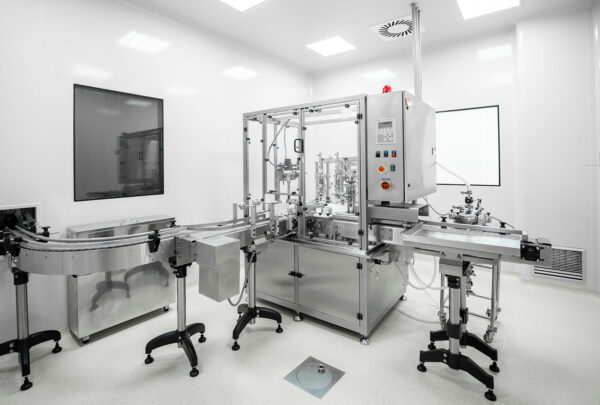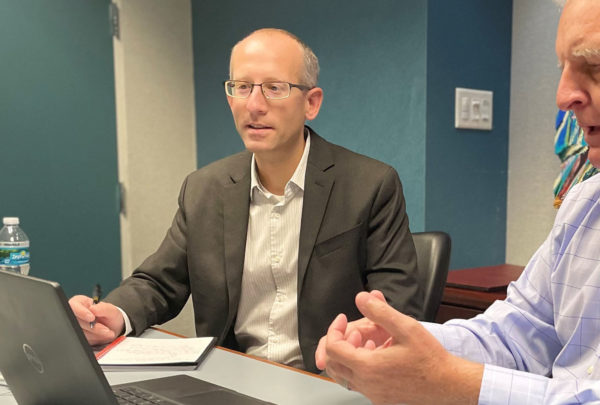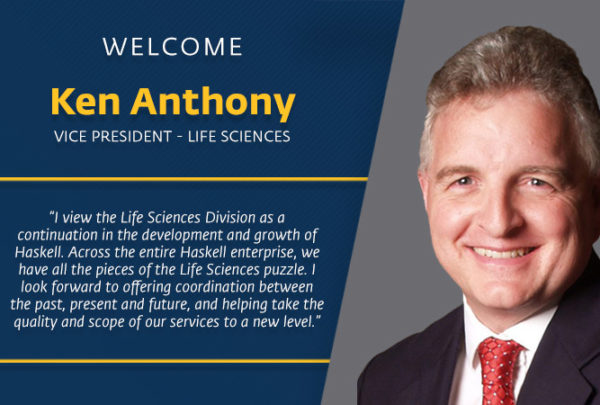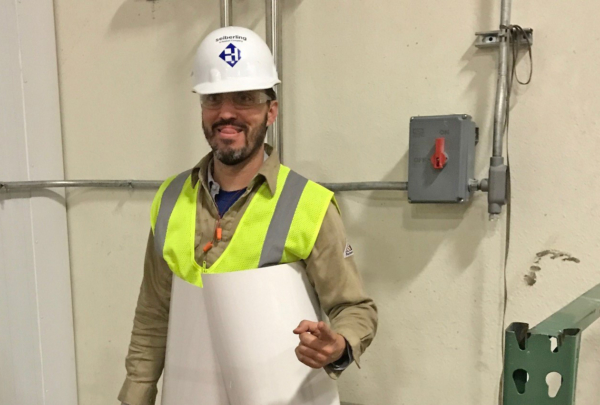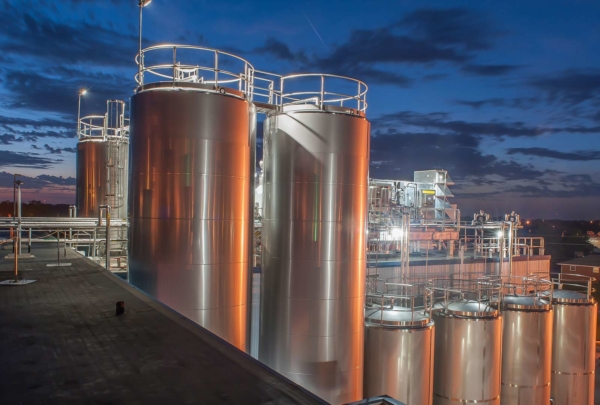Producing the best possible patient outcome is the universal focus in healthcare and, by extension, those in life science fields. Haskell has decades of experience providing solutions for health systems and a considerable resume in biopharmaceuticals and advanced manufacturing.
Yet as it has expanded its presence in support of those who provide care, Haskell’s greatest attributes continue to be its most basic.
“As Haskell continues to grow within the life sciences market, the company must stick to its four main strengths: project safety, financial stability, customer advocacy, and longevity,” said Ken Anthony, Vice President of Haskell’s Life Sciences Division. “Haskell’s industry-leading safety record speaks for itself.
“Haskell has gained tremendous financial stability through solid project performance and continuous revenue growth. This enables our firm to take on larger, more complex engineer, procure, construct (EPC) projects in advanced manufacturing. We are recognized by our customers as a trusted advisor for their most challenging projects, and when it comes to Life Science projects, building a trusted team is key to success. Finally, Haskell has longevity. As an employee-owned company, Haskell has greater stability than publicly held or single-owner companies. We are strong because of our team members, many that have been with the firm for their entire careers.”
The Life Sciences team is focused on four sectors: pharmaceuticals, biotechnology, medical devices and technology, and high-purity active pharmaceutical ingredients (API). These four focus areas require expertise in Current Good Manufacturing Practices (cGMP) design, contamination-control strategy and implementation, design/procure/build for Commissioning, Qualification and Validation (CQV) and efficient transition to operations, and deep knowledge in managing subcontractors through project management and control methods that are at the heart of Haskell’s practice.
With 20 offices across the U.S., Haskell is near most of the country’s life sciences clusters, and its significant presence in Latin America and Asia-Pacific provides the scale needed to support multinational clients. Further, a specialized segment of its process engineering team has a unique focus on crafting hygienic solutions for complex manufacturing systems, and developing innovative ways to incorporate the benefits of CIP and SIP into the appropriate environments has defined its work for more than 40 years. Recent industry clients include Genetech, Amgen, GSK, and Eli Lilly.
“Life Sciences is a continuation of Haskell’s past pharmaceutical work, with a significant number of projects over the past 15 years,” Anthony said. “Coupled with our deep knowledge and experience in healthcare facilities, Haskell is well-positioned to focus our services that require regulatory oversight, review, and approval by the Food and Drug Administration (FDA) and the Biomedical Research and Development Authority (BARDA).
“Continuing to grow in life sciences is a natural extension of Haskell’s work in health care. Haskell already has rich experience in process systems, cGMP design, clean-in-place (CIP), sterilization-in-place (SIP), clean rooms, various laboratories and specialized space design, and advanced manufacturing. The resources and expertise in our Life Sciences Division, and the addition of key personnel brings experience in Cell Culture, Gene Therapy, and advanced laboratory design to complement our excellent design staff and subject matter experts.”
Given its comprehensive design and construction expertise, Haskell takes a holistic approach rto facilities solutions, combining full-service life sciences work with the expertise to deliver the non-regulated portions of projects, such as industrial wastewater treatment systems, central utility plants, site selection and preparation, and other infrastructure-related requirements to enable renovation or greenfield projects.
Supply chain disruptions caused the pandemic created demand to reshore or near-shore critical high-purity API production facilities, the factories that supply the basic chemical ingredients necessary for drug and equipment manufacturing. Medical device manufacturers are also under pressure to produce at record levels and have found weakness in their reliance for global supply of the materials needed to integrate their products.
“Many of these companies will be looking to relocate to North America, whether in the U.S., Mexico, or another country in the region,” Anthony said. “They need reputable EPC expertise to help them plan their facilities, select and prepare suitable sites and design, procure, and construct their new facilities. In fact, Haskell is already working on projects for two multinational pharmaceutical companies in Mexico. Our strong regional expertise is a great resource for life sciences projects in the area.”
Anthony, an industry veteran with more than 30 years of experience leading capital projects for advanced manufacturing projects in biotech, pharma, semiconductor, engineered materials and food and beverage, stressed the importance of understanding clients’ challenges. He said he looked forward to partnering with other firms in the Life Sciences space to offer the best possible solutions with the customer’s needs always at the center of the discussion.
Contact Haskell’s Life Sciences team to collaborate about your facilities needs in the pharmaceutical, biotechnology, medical device and technology or high-purity API sectors.







